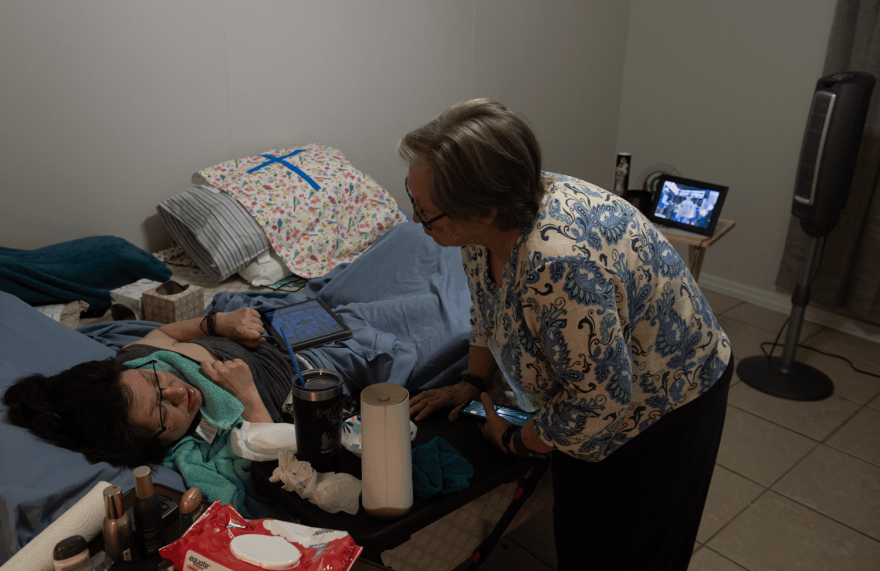As temperatures creep toward the triple digits, electric bills have long crossed that threshold. With light bills at times rivaling the cost of a house note, those with low incomes struggle to keep their homes at a safe and comfortable temperature — combating the scorching Louisiana heat in the summer and countering unprecedented temperature drops in the winter.
People like Sheryl Doiron.
The St. Mary Parish resident has been receiving assistance from the Low Income Housing Energy Assistance Program for the past 10 years, since she had to retire from her job as a social services worker with the St. Mary Community Action Agency — the very agency processing applications for the program — to take care of her severely disabled daughter.
“I was able to get by, and here you hit a stumbling block,” she remembers. She was quickly faced with a choice: Should she buy the food that helps keep her diabetes in check, or pay her utility bill?
Now, she and others dependent on the program may face another stumbling block: The Trump administration has declared the program “unnecessary” and is urging legislators to cut it. This came after the U.S. Department of Health and Human Services laid off the entire staff administering the program. They have since been terminated.
For Doiron, the administration’s assessment couldn’t be further from reality. “Utility assistance was the biggest help — it’s really the only help I’ve ever received from the government,” she says.
And she’s not alone. In 2022, the latest year for which this data is available, more than 17,000 households in Louisiana received assistance through the program, most of them with household incomes significantly below the federal poverty level.
For many of those households, the program is a lifeline, especially at a time when the cost of living has soared across the board. “A lot of elderly people have to decide whether to pay their light bill, medication or food,” says Carleen Bellard, director of the Evangeline Community Action Agency, which processes applications for the program for Evangeline Parish residents.
The demand is so significant, Bellard says, that the agency routinely has to turn applicants away, even if they may meet the program’s eligibility requirements. “We have to cut it off at some point. We can’t help everyone,” she says.
In a parish of roughly 31,000 residents, the agency’s waitlist for LIHEAP usually counts around 200 households, according to Bellard.
Especially for elderly residents, the excessive heat combined with a loss of power is dangerous and potentially deadly. Those with pre-existing medical conditions, including seniors, are more susceptible to the negative health effects of extreme heat and often have medical equipment powered by electricity.
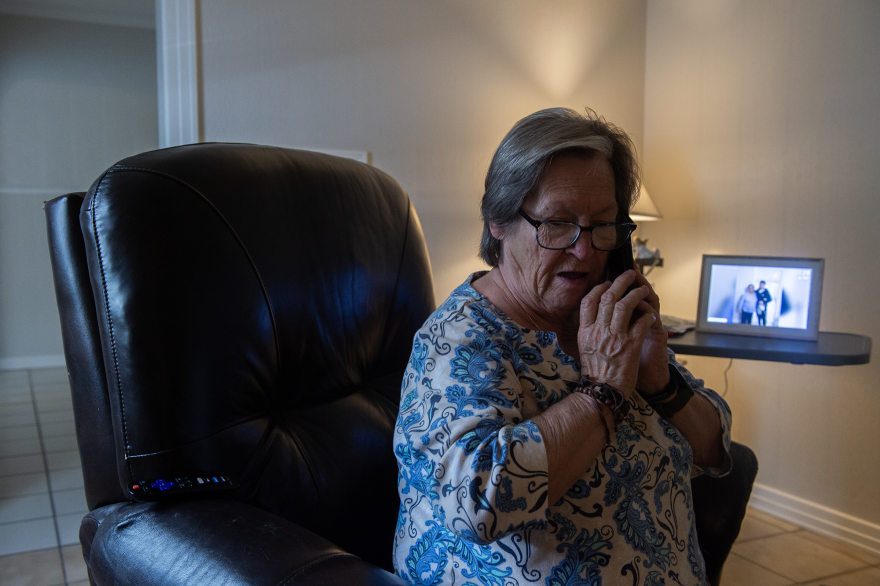
And with the looming threat of record-breaking heat — three out of the state’s Top 5 hottest summers on record occurred in the past 15 years — the issue of cooling homes is only expected to become more pressing.
One of the Trump administration’s arguments for deeming the program unnecessary is that many states, including Louisiana, have laws that prohibit power companies from shutting off electricity for non-payment.
However, in Louisiana, that protection only kicks in when the National Weather Services issues a heat warning, the threshold for which are temperatures of 103 degrees Fahrenheit or higher, or extreme cold of 32 degrees Fahrenheit or lower. Meanwhile, temperatures above 90°F are considered dangerous for the elderly, especially when accompanied by high humidity levels.
In short, “it’s important for seniors to have access to power,” says Shannon Broussard, executive director of the Cajun Area Agency on Aging.
And while there is emergency assistance available to households that have had their power cut off due to non-payment, a significant amount of that assistance comes from LIHEAP crisis funds.
The Louisiana Housing Corporation, which receives Louisiana’s annual allocation — just under $60 million for the current fiscal year — declined to answer specific questions regarding changes in eligibility requirements included in the federal budget bill, its ability to administer the program locally following the firings of all program staff on the federal level, or the potential effects should the program be discontinued.
“LHC has closely followed developments in potential funding changes that could affect programs administered by the agency. As changes are approved, the agency will do its best to fulfill its mission towards safe, affordable, and energy-efficient housing,” the agency told The Current via email.
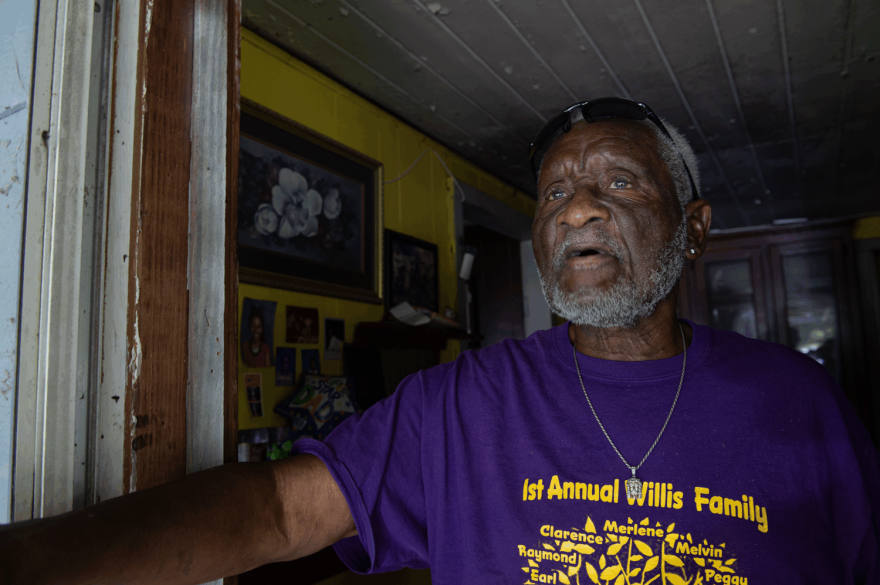
So what’s going to happen to energy assistance for low-income households?
Despite the Trump administration’s declared goal to end the program, its fate is yet to be decided. Funding for the program was not included in the “Big, Beautiful” budget bill, and it’s now up to the House and Senate appropriations committees to decide on funding for the upcoming fiscal year.
Louisiana’s delegation has been notably quiet on the issue.
Shortly after the entire program staff was told to pack up their desks, the American Public Power Association and the National Rural Electric Cooperative Association, which counts among its members local utility co-ops like Jefferson Davis Electric Co-op and SLEMCO, sent a letter to U.S. Sen. Bill Cassidy (R-LA), chair of the Senate Health, Education, Labor, and Pensions Committee. That committee is the Senate’s legislative body charged with deciding the program’s fate.
Outside of inviting HHS Secretary Robert F. Kennedy Jr. to appear for a special hearing on April 10, which didn’t take place, Cassidy hasn’t spoken publicly on the issue. When Kennedy finally did appear in front of the committee to discuss restructuring and layoffs within his department, it was Sen. Lisa Murkowski of Alaska who asked the secretary his thoughts on the future of the program.
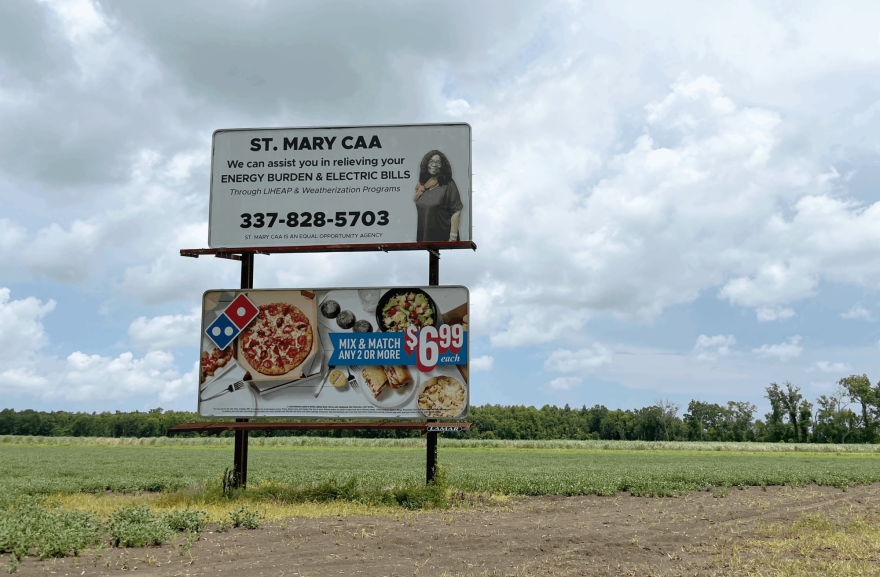
Kennedy told committee members that, during a recent visit, he had been told by the president of the Navajo Nation that ending the program would likely result in deaths within the tribe’s Arizona territory.
Still, the HHS secretary repeated claims put forth by the Trump administration that its strategy for lowering energy costs would result in lower prices for consumers, eliminating the need for the program.
“If it doesn’t happen, then Congress is welcome — and they should — appropriate the money for LIHEAP, and I will spend it,” Kennedy told a House committee responsible for the program’s funding during a previous meeting that day on the same subject.
In that meeting, Kennedy told House committee members he had been communicating closely with Cassidy on budget cuts and restructuring of his department, which included the firing of LIHEAP staff.
In the hearing of the Senate committee Cassidy chairs, Murkowski told Kennedy that the continuance of the program would likely receive that committee’s approval. “I think you’re going to find a lot of support for that,” she said.
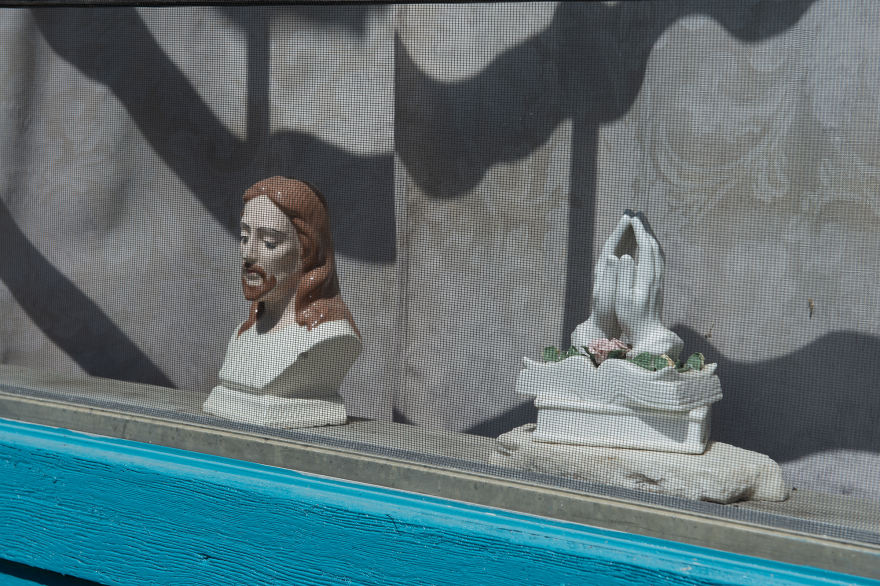
‘The other side of the table’
For Sheryl Doiron, the St. Mary Parish resident caring for her permanently bed-ridden daughter, paying her light bill is just one of many challenges she has to juggle on a daily basis.
Recently, she’s had to fight her daughter’s insurance provider over its refusal to pay for her daughter’s insulin. Last week, she just got permission to move back into her renovated house, after a defective power strip set the home ablaze last year.
She doesn’t mince words when it comes to how she feels about the politicians meant to represent her on a state and federal level when it comes to programs like LIHEAP. “I know I’m probably sounding ugly, but they don’t want anything that’s going to help us,” she says.
Cassidy’s office did not respond to questions about the program and future funding by publication deadline.
Once one of the workers who processed applications for the program, Doiron points out that her own story is a testament to how an emergency, an illness in the family or other misfortune can make one dependent on assistance.
“You can be on this side of the table and, with the flip of a switch, you can be on the other side,” she says.


